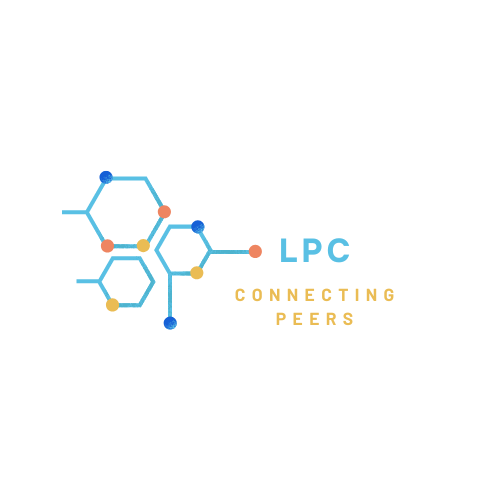
Introduction:
Bottled water has become a popular choice in Lebanon, providing convenience and the perception of safety and quality. However, it is important to explore the actual quality of bottled water in Lebanon, as well as the treatment methods used to ensure its safety. This blog post aims to shed light on the topic, citing relevant published studies in Lebanon.
Several studies have focused on assessing the quality of bottled water in Lebanon, highlighting potential concerns, and identifying areas for improvement.
A study conducted by Jamali et al. (2018) assessed the microbiological quality of bottled water in Lebanon. The study examined 126 samples from different brands and found that 25% of the samples did not meet the microbiological standards set by the World Health Organization (WHO). The presence of bacteria, such as coliforms and Escherichia coli (E.coli), highlighted potential risks to consumer health.
In a study conducted by Haddad et al. (2017), an evaluation of 30 different bottled water brands in Lebanon revealed that some samples exceeded the recommended safety limits for specific parameters, such as microbiological contaminants and mineral content. This study emphasizes the need for continuous monitoring and strict adherence to quality standards by bottled water producers.
In another study, Sohail et al. (2016) analyzed the presence of chemical contaminants in bottled water brands available in Lebanon. The study evaluated 25 samples and detected the presence of various contaminants, including heavy metals such as lead and cadmium, as well as pesticides. These findings emphasize the need for rigorous monitoring and regulation of bottled water in Lebanon.
A study by Abbas and Al Aboud (2018), assessed the quality of bottled water in Lebanon and compared it to drinking water guidelines. It examined parameters such as pH, total dissolved solids, bacteria, and metals. The findings highlighted the need for stricter monitoring and compliance with regulatory standards.
Treatment Methods in Bottled Water Industry in Lebanon
To ensure the delivery of safe bottled water, producers in Lebanon employ various treatment methods. The primary processes include filtration, disinfection, and mineralization. Filtration methods commonly used include activated charcoal filters for removing physical impurities and reverse osmosis for eliminating dissolved solids and contaminants. Additionally, ultraviolet (UV) disinfection or ozonation are commonly employed to eliminate harmful microorganisms.
Investigating the treatment methods used by the bottled water industry in Lebanon, Karaky et al. (2020) surveyed 30 bottled water companies. The study revealed that the most commonly used treatment methods were ozone disinfection, carbon filtration, and ultraviolet (UV) treatment. These technologies play a crucial role in eliminating microorganisms and improving water quality.
Water Sources and Filtration Effectiveness:
A study conducted by Ghanem et al. (2021) focused on the source and filtration efficiency of bottled water in Lebanon. The research analyzed 63 samples from different sources and found that 14% of the samples did not meet the standards set by the Lebanese Ministry of Public Health (MOPH). The study highlights the importance of transparent labeling and effective filtration methods to ensure water safety for consumers.
Conclusion:
Ensuring the quality of bottled water in Lebanon is of paramount importance, considering the limited access to safe drinking water in some areas. While the size of the water specimens analyzed in the cited studies is small and not allowing to generalize the results.
Published studies have shed light on the potential concerns regarding bottled water quality, underscoring the significance of regular monitoring and adherence to quality standards. Future efforts should focus on strengthening regulations and promoting consumer awareness to guarantee the consistent delivery of high-quality bottled water in Lebanon.
Cited Studies:
Jamali, I. B., et al. (2018). “Microbiological quality of bottled water in Lebanon.” Environmental Monitoring and Assessment, 190(9), 511.
Sohail, M., et al. (2016). “Analysis of chemical contaminants in bottled water brands available in Lebanon.” Journal of Food Composition and Analysis, 45, 58-64.
Karaky, N., et al. (2020). “Advances in the management of water resources: A survey of water treatment processes used by bottled water companies in Lebanon.” Environmental Technology & Innovation, 20, 101087.
Ghanem, N., et al. (2021). “Analysis of Lebanese bottled water: Source, treatment and compliance with local regulations.” Environmental Science and Pollution Research, 28(17), 21469-21479.
Haddad, J. et al. (2017). “Evaluation of the Quality of Bottled Water Marketed in Lebanon.” Journal of Environmental Health Science and Engineering, 15(1), 12.
Abbas, S. and Al-Aboud, T. (2018). “Quality Control of Bottled Water in Lebanon: Comparison with Drinking Water Guidelines.” Environmental Monitoring and Assessment, 190(8), 455.
Muzaffar, M., Saadeddin, S., & Al Awar, N. (2016). A Study on Bottled Water Drinking Behavior: Implications in Lebanon.
leiman, F., El-Jardali, F., & Bray, N. (2012). Assessment of the Quality of Bottled Water Marketed in Lebanon.
Massoud MA, Maroun R, Abdelnabi H, Jamali II, El-Fadel M. Public perception and economic implications of bottled water consumption in underprivileged urban areas. Environ Monit Assess. 2013 Apr;185(4):3093-102. doi: 10.1007/s10661-012-2775-x. Epub 2012 Jul 26. PMID: 22828978.
